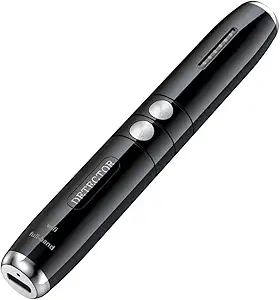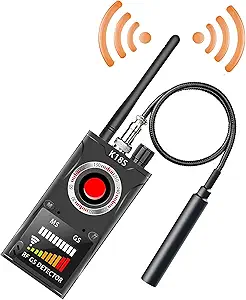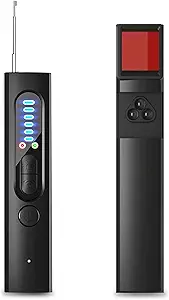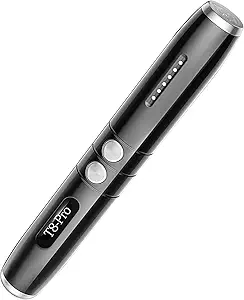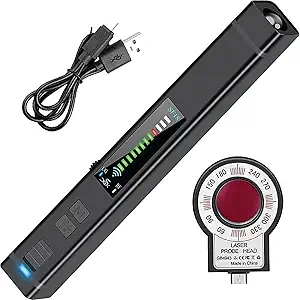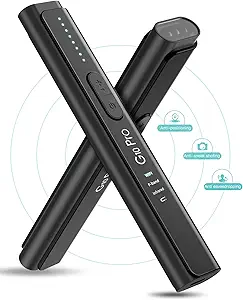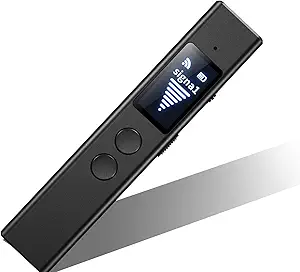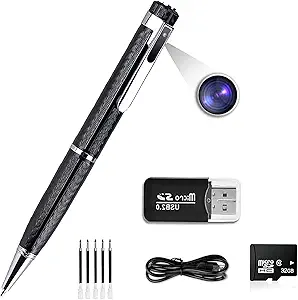The Ultimate Buying Guide for Hidden Camera Detectors
Overview
Have you ever felt like someone was watching you, but couldn't quite put your finger on it? It's possible that you're being secretly recorded by a hidden camera. Whether you're concerned about personal privacy or want to protect your business from espionage, a hidden camera detector can help you locate and disable hidden cameras. In this buying guide, we'll take you through the different types of hidden camera detectors, key considerations when choosing one, features to look for, prices, tips, and FAQs.
Types
1. RF Detectors: These detectors can detect wireless signals emitted by hidden cameras. They work by scanning the radio frequency spectrum and alerting you when they detect a signal.
2. Camera Lens Detectors: These detectors use a bright LED light to reflect off the lens of a hidden camera, making it visible to the naked eye.
3. Bug Detectors: These detectors can detect hidden microphones and other listening devices.
4. GPS Tracker Detectors: These detectors can detect GPS trackers that are often used to track people or vehicles.
5. Camera Detector Apps: These apps use your smartphone's camera and flashlight to detect hidden cameras.
Key Considerations
1. Detection Range: Consider the range of the detector and ensure it fits your needs.
2. Sensitivity: Look for a detector with adjustable sensitivity levels to avoid false alarms.
3. Battery Life: Check the battery life of the detector and ensure it fits your needs.
4. Portability: Consider the size and weight of the detector if you plan to carry it with you.
5. Price: Determine your budget and look for a detector that fits within it.
Features
1. Alarm: A detector with an alarm can alert you audibly or visually when it detects a hidden camera.
2. Display: Some detectors have a display that shows the type of signal detected and the strength of the signal.
3. Headphone Jack: A headphone jack can allow you to listen for signals in a noisy environment.
4. Detection Modes: Some detectors have multiple detection modes for different types of signals.
5. Durability: Look for a detector made of durable materials that can withstand wear and tear.
Prices
Hidden camera detectors range in price from around $10 to $500. The price will depend on the type of detector, features, and brand.
Tips
1. Use the detector in a quiet environment to avoid interference.
2. Sweep the room slowly and methodically to ensure you don't miss any hidden cameras.
3. Look for hidden cameras in common areas such as bathrooms, bedrooms, and living rooms.
4. Check for cameras in everyday objects such as clocks, smoke detectors, and picture frames.
5. Consider hiring a professional to sweep your home or business for hidden cameras.
FAQs
Q: Can a hidden camera detector detect all types of hidden cameras?
A: No, not all detectors can detect all types of hidden cameras. Make sure you choose a detector that is specifically designed for the type of camera you are trying to detect.
Q: Can hidden cameras be detected through walls?
A: No, hidden cameras cannot be detected through walls. However, some detectors can detect the wireless signals emitted by cameras, even if they are behind a wall.
Q: Do hidden camera detectors work on all types of surfaces?
A: No, detectors may not work on all types of surfaces, such as metal or concrete. Be sure to check the detector's specifications to ensure it will work on the surfaces you need it to.
Q: Can I use a hidden camera detector to find hidden microphones?
A: Yes, some detectors are specifically designed to detect hidden microphones and other listening devices.
Conclusion
In conclusion, a hidden camera detector is an essential tool for protecting your privacy and security. By understanding the different types, key considerations, features, prices, tips, and FAQs, you can choose the best detector for your needs and enjoy peace of mind.

